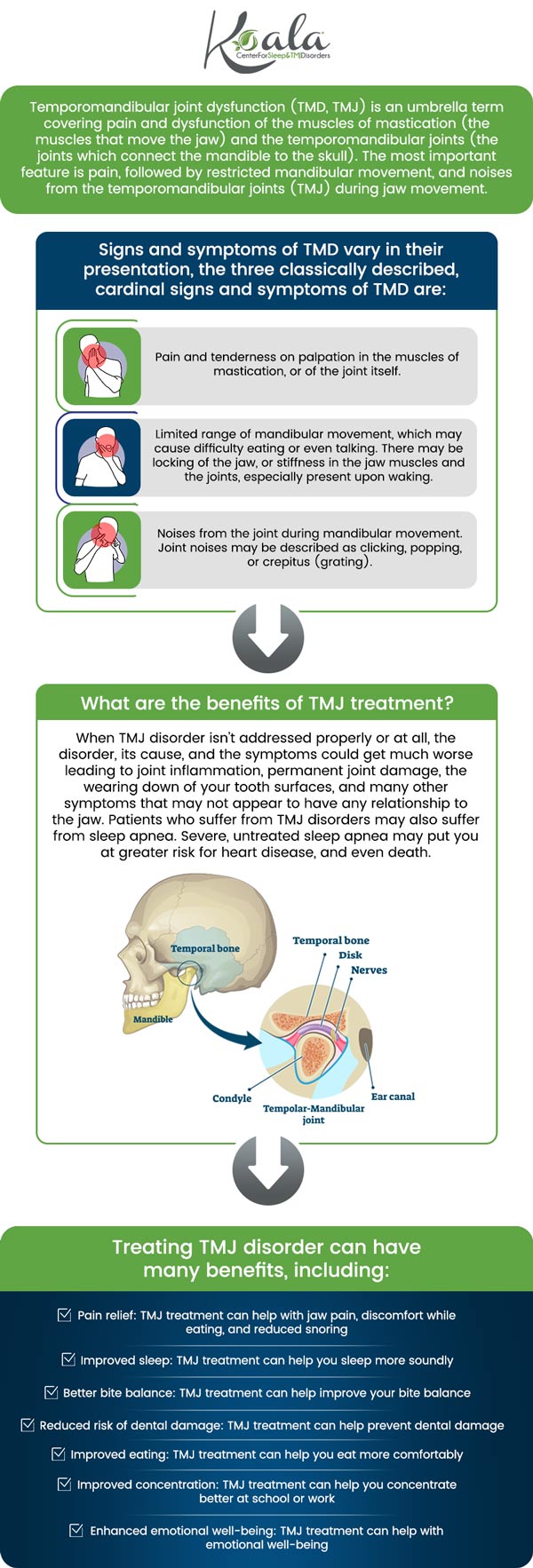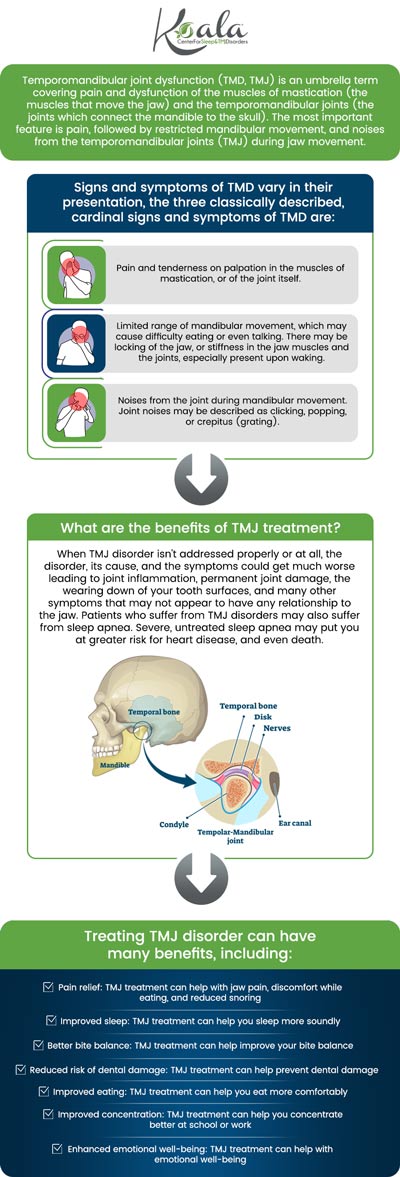TMJ Sleep Center in Wausau, WI
A TMJ sleep center specializes in the diagnosis and treatment of sleep disorders related to TMJ dysfunction, such as teeth grinding and jaw clenching during sleep. These conditions can cause disrupted sleep and chronic pain. At Koala Center For Sleep & TMJ Disorders, our providers offer comprehensive treatments to improve both your sleep quality and TMJ health. For more information, please contact us or request an appointment online. We are conveniently located at 413 North 17th Avenue Ste. #100 Wausau, WI 54401.


Table of Contents:
How can TMJ disorder affect sleep quality?
What treatments are offered at a TMJ sleep center in Wausau, WI?
Can a TMJ sleep center help with teeth grinding during sleep?
How do I know if I need treatment for TMJ-related sleep issues?
For many patients, the effects of TMJ disorder become even more noticeable at night, when misalignment or joint strain interferes with the body’s ability to settle into deep, restorative sleep. When the jaw isn’t resting in a healthy position, the surrounding muscles can trigger clenching or grinding, leading to repeated awakenings throughout the night and deteriorating sleep quality. This often leaves the patient exhausted by morning, even after what seemed like a full night’s rest. TMJ-related sleep disturbances can also stem from restricted airflow. In some cases, the lower jaw may fall back during sleep, narrowing the airway and increasing the likelihood of fragmented breathing or even mild forms of sleep-disordered breathing. The result is a strain not only on the joint but on the entire sleep-wake cycle. Individuals may wake up with headaches, facial soreness, or neck tension without realizing their jaw was the source of the problem. Identifying that link between joint dysfunction and poor sleep can help to restore sleep quality.
The providers at Koala Center For Sleep & TMJ Disorders offer a variety of treatments aimed at targeting jaw joint issues and poor sleep quality. After a thorough evaluation, which typically includes jaw mobility tests, sleep screening, and bite analysis, the team creates a tailored plan to address both the structural and functional components of the problem. For many, this begins with a custom oral appliance designed to reposition the lower jaw during sleep, helping to stabilize the joint and ease muscle strain overnight. Alongside appliance therapy, patients may receive additional support through therapeutic exercises, posture coaching, and adjustments aimed at improving the way the jaw rests throughout the day and night. In some cases, if breathing concerns are present, the treatment may also include strategies to open the airway and reduce pressure on the joint caused by nighttime clenching or grinding.
Grinding the teeth during sleep, or sleep bruxism, is one of the most common signs that the jaw is under strain. For patients with TMJ disorder, this unconscious habit can wear down the teeth, strain the joint further, and prevent the jaw muscles from ever fully relaxing. A TMJ sleep center is uniquely positioned to address this because the providers are trained to manage the dental impact and understand the underlying joint dysfunction that’s triggering the grinding in the first place. By analyzing how the bite fits together, how the joint moves, and how the patient sleeps, the team can determine if bruxism is connected to poor jaw alignment, stress-related tension, airway obstruction, or a combination of factors. A precision-fit oral appliance may be recommended to reposition the jaw during sleep, taking pressure off the muscles and protecting the teeth from further damage. That device, along with follow-up care and symptom tracking, often leads to a reduction in grinding and a meaningful improvement in the patient’s overall rest.
Jaw problems often present slowly, and the signs can be easy to miss at first. Some patients wake with headaches or sore facial muscles but don’t connect it to grinding or clenching during sleep. Others might notice interrupted rest or trouble staying asleep, only to discover later that their airway is being restricted by the position of their jaw. When discomfort around the joint presents with disrupted sleep or daytime fatigue, it’s often a sign that those symptoms are connected and worth addressing as part of the same issue. The specialists at Koala Center For Sleep & TMJ Disorders evaluate those overlapping concerns with a targeted approach. During the diagnostic process, they consider everything from jaw tension and joint sounds to bite function and nighttime breathing. Whether the problem is associated with clenching, misalignment, or poor jaw posture during sleep, a customized plan is created to relieve the joint and help restore sleep quality. For more information, contact us or make your appointment. We serve patients from Wausau WI, Schofield WI, Weston WI, Rothschild WI, Brokaw WI, and surrounding areas.

Additional Services You May Need
▸ KoalaKIDZzz®
▸ Sleep Apnea
▸ Snoring
▸ TMJ Disorder
▸ Fatigue
▸ Sleep Disorders
▸ Weight Loss
▸ CPAP Alternative
▸ Oral Appliances




